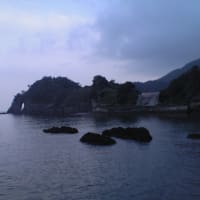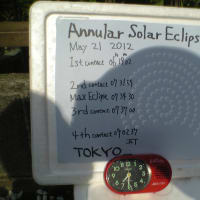ベトナム戦争取材で活躍したカメラマンの回顧本の順番が来ましたという図書館からのお知らせメールが来た折も折、そのトンマな戦争の黒幕というか、政策立案者が93歳で天寿を全うしたというニュースが。
nytimes/
Robert S. McNamara, Architect of a Futile War, Dies at 93
Robert S. McNamara, the forceful and cerebral defense secretary who helped lead the nation into the maelstrom of Vietnam and spent the rest of his life wrestling with the war’s moral consequences, died Monday at his home in Washington. He was 93.
記事本文を読むのがつらいヒトは、フォトギャラリーでも見よう!
ベトナム戦争が「マクナマラの戦争」と呼ばれた由来があったのね。
最初にそう呼んだ人あり。言われた本人もまんざらでもなかった、と。
As early as April 1964, Senator Wayne Morse, Democrat of Oregon, called Vietnam “McNamara’s War.” Mr. McNamara did not object. “I am pleased to be identified with it,” he said, “and do whatever I can to win it.”
いまさら反省しても、30年遅い!って?
In 1995, he took a stand against his own conduct of the war, confessing in a memoir that it was “wrong, terribly wrong.” In return, he faced a firestorm of scorn.
“Mr. McNamara must not escape the lasting moral condemnation of his countrymen,” The New York Times said in a widely discussed editorial, written by the page’s editor at the time, Howell Raines. “Surely he must in every quiet and prosperous moment hear the ceaseless whispers of those poor boys in the infantry, dying in the tall grass, platoon by platoon, for no purpose. What he took from them cannot be repaid by prime-time apology and stale tears, three decades late.”
第2次大戦中、ルメイのスタッフとして効率的な日本爆撃を立案したのは有名だよね。(知らなかったお友達は、よく覚えておくように)
“We burned to death 100,000 Japanese civilians in Tokyo — men, women and children,” Mr. McNamara recalled; some 900,000 Japanese civilians died in all. “LeMay said, ‘If we’d lost the war, we’d all have been prosecuted as war criminals.’ And I think he’s right. He — and I’d say I — were behaving as war criminals.”
で、最終部分が:
Unlike any other secretary of defense, Mr. McNamara struggled in public with the morality of war and the uses of American power.
“We are the strongest nation in the world today,” Mr. McNamara said in “The Fog of War,” released at the time of the 2003 invasion of Iraq. “I do not believe that we should ever apply that economic, political, and military power unilaterally. If we had followed that rule in Vietnam, we wouldn’t have been there. None of our allies supported us. Not Japan, not Germany, not Britain or France. If we can’t persuade nations with comparable values of the merit of our cause, we’d better re-examine our reasoning.”
“War is so complex it’s beyond the ability of the human mind to comprehend,” he concluded. “Our judgment, our understanding, are not adequate. And we kill people unnecessarily.”
ということなんだけど、NYT紙で興味深いのは、読者のコメントの数々。編集部お勧めのコメントなど、拾い読みするのも一興。397 Readers' Commentsにて受付終了。
ラムズフェルドとの対比というか、並列なんか、みな考えるよねえ。
washingtonpost/
'Terribly Wrong' Handling of Vietnam Overshadowed Record of Achievement
Robert S. McNamara, 93, the former secretary of defense whose record as a leading executive of industry and chieftain of foreign financial aid was all but erased from public memory by his reputation as the primary architect of U.S. involvement in the war in Vietnam, died yesterday at his home in Washington.
こちらも、フォトギャラリーあり。
訃報に記される経歴に、日本爆撃立案のくだりは欠かせないな。
He elaborated on Vietnam and the other events that shaped his life in Errol Morris's Academy Award-winning documentary "The Fog of War: Eleven Lessons From the Life of Robert S. McNamara" (2003). He described how as a young man he had analyzed bombing operations under the command of Gen. Curtis LeMay during World War II and in that job played a role in making the firebombing of dozens of Japanese cities "more efficient."
"We burned to death 100,000 Japanese civilians in Tokyo -- men, women and children," he told Morris. "LeMay recognized that what he was doing would be thought immoral if his side had lost," he added. "But what makes it immoral if you lose and not immoral if you win?"
感想を聞きたかったハルバースタムが一足先に亡くなっていたのは残念なことだ。
The harshest critic of all, journalist and author David Halberstam, describing McNamara's trips to Saigon in "The Best and the Brightest," wrote that McNamara, the ultimate technocrat, was "a prisoner of his own background . . . unable, as indeed was the country which sponsored him, to adapt his values and his terms to Vietnamese realities. Since any real indices and truly factual estimates of the war would immediately have shown its bankruptcy, the McNamara trips became part of a vast unwitting and elaborate charade, the institutionalizing and legitimizing of a hopeless lie."
In Halberstam's judgment, McNamara "did not serve himself or his country well. He was, there is no kinder or gentler word for it, a fool."
冷戦真っただ中の国防長官として、ミサイルの多核弾頭化を推進したマクナマラの死んだ年に就任した黒人大統領が、核廃絶に言及したことは意義深いことだ。
1:47:03って、もしかして全篇?
The Fog of War ~ Documentary about Sec. of Defense Robert McNamara's Experience - 1:47:03
nytimes/
Robert S. McNamara, Architect of a Futile War, Dies at 93
Robert S. McNamara, the forceful and cerebral defense secretary who helped lead the nation into the maelstrom of Vietnam and spent the rest of his life wrestling with the war’s moral consequences, died Monday at his home in Washington. He was 93.
記事本文を読むのがつらいヒトは、フォトギャラリーでも見よう!
ベトナム戦争が「マクナマラの戦争」と呼ばれた由来があったのね。
最初にそう呼んだ人あり。言われた本人もまんざらでもなかった、と。
As early as April 1964, Senator Wayne Morse, Democrat of Oregon, called Vietnam “McNamara’s War.” Mr. McNamara did not object. “I am pleased to be identified with it,” he said, “and do whatever I can to win it.”
いまさら反省しても、30年遅い!って?
In 1995, he took a stand against his own conduct of the war, confessing in a memoir that it was “wrong, terribly wrong.” In return, he faced a firestorm of scorn.
“Mr. McNamara must not escape the lasting moral condemnation of his countrymen,” The New York Times said in a widely discussed editorial, written by the page’s editor at the time, Howell Raines. “Surely he must in every quiet and prosperous moment hear the ceaseless whispers of those poor boys in the infantry, dying in the tall grass, platoon by platoon, for no purpose. What he took from them cannot be repaid by prime-time apology and stale tears, three decades late.”
第2次大戦中、ルメイのスタッフとして効率的な日本爆撃を立案したのは有名だよね。(知らなかったお友達は、よく覚えておくように)
“We burned to death 100,000 Japanese civilians in Tokyo — men, women and children,” Mr. McNamara recalled; some 900,000 Japanese civilians died in all. “LeMay said, ‘If we’d lost the war, we’d all have been prosecuted as war criminals.’ And I think he’s right. He — and I’d say I — were behaving as war criminals.”
で、最終部分が:
Unlike any other secretary of defense, Mr. McNamara struggled in public with the morality of war and the uses of American power.
“We are the strongest nation in the world today,” Mr. McNamara said in “The Fog of War,” released at the time of the 2003 invasion of Iraq. “I do not believe that we should ever apply that economic, political, and military power unilaterally. If we had followed that rule in Vietnam, we wouldn’t have been there. None of our allies supported us. Not Japan, not Germany, not Britain or France. If we can’t persuade nations with comparable values of the merit of our cause, we’d better re-examine our reasoning.”
“War is so complex it’s beyond the ability of the human mind to comprehend,” he concluded. “Our judgment, our understanding, are not adequate. And we kill people unnecessarily.”
ということなんだけど、NYT紙で興味深いのは、読者のコメントの数々。編集部お勧めのコメントなど、拾い読みするのも一興。397 Readers' Commentsにて受付終了。
ラムズフェルドとの対比というか、並列なんか、みな考えるよねえ。
washingtonpost/
'Terribly Wrong' Handling of Vietnam Overshadowed Record of Achievement
Robert S. McNamara, 93, the former secretary of defense whose record as a leading executive of industry and chieftain of foreign financial aid was all but erased from public memory by his reputation as the primary architect of U.S. involvement in the war in Vietnam, died yesterday at his home in Washington.
こちらも、フォトギャラリーあり。
訃報に記される経歴に、日本爆撃立案のくだりは欠かせないな。
He elaborated on Vietnam and the other events that shaped his life in Errol Morris's Academy Award-winning documentary "The Fog of War: Eleven Lessons From the Life of Robert S. McNamara" (2003). He described how as a young man he had analyzed bombing operations under the command of Gen. Curtis LeMay during World War II and in that job played a role in making the firebombing of dozens of Japanese cities "more efficient."
"We burned to death 100,000 Japanese civilians in Tokyo -- men, women and children," he told Morris. "LeMay recognized that what he was doing would be thought immoral if his side had lost," he added. "But what makes it immoral if you lose and not immoral if you win?"
感想を聞きたかったハルバースタムが一足先に亡くなっていたのは残念なことだ。
The harshest critic of all, journalist and author David Halberstam, describing McNamara's trips to Saigon in "The Best and the Brightest," wrote that McNamara, the ultimate technocrat, was "a prisoner of his own background . . . unable, as indeed was the country which sponsored him, to adapt his values and his terms to Vietnamese realities. Since any real indices and truly factual estimates of the war would immediately have shown its bankruptcy, the McNamara trips became part of a vast unwitting and elaborate charade, the institutionalizing and legitimizing of a hopeless lie."
In Halberstam's judgment, McNamara "did not serve himself or his country well. He was, there is no kinder or gentler word for it, a fool."
冷戦真っただ中の国防長官として、ミサイルの多核弾頭化を推進したマクナマラの死んだ年に就任した黒人大統領が、核廃絶に言及したことは意義深いことだ。
1:47:03って、もしかして全篇?
The Fog of War ~ Documentary about Sec. of Defense Robert McNamara's Experience - 1:47:03

























